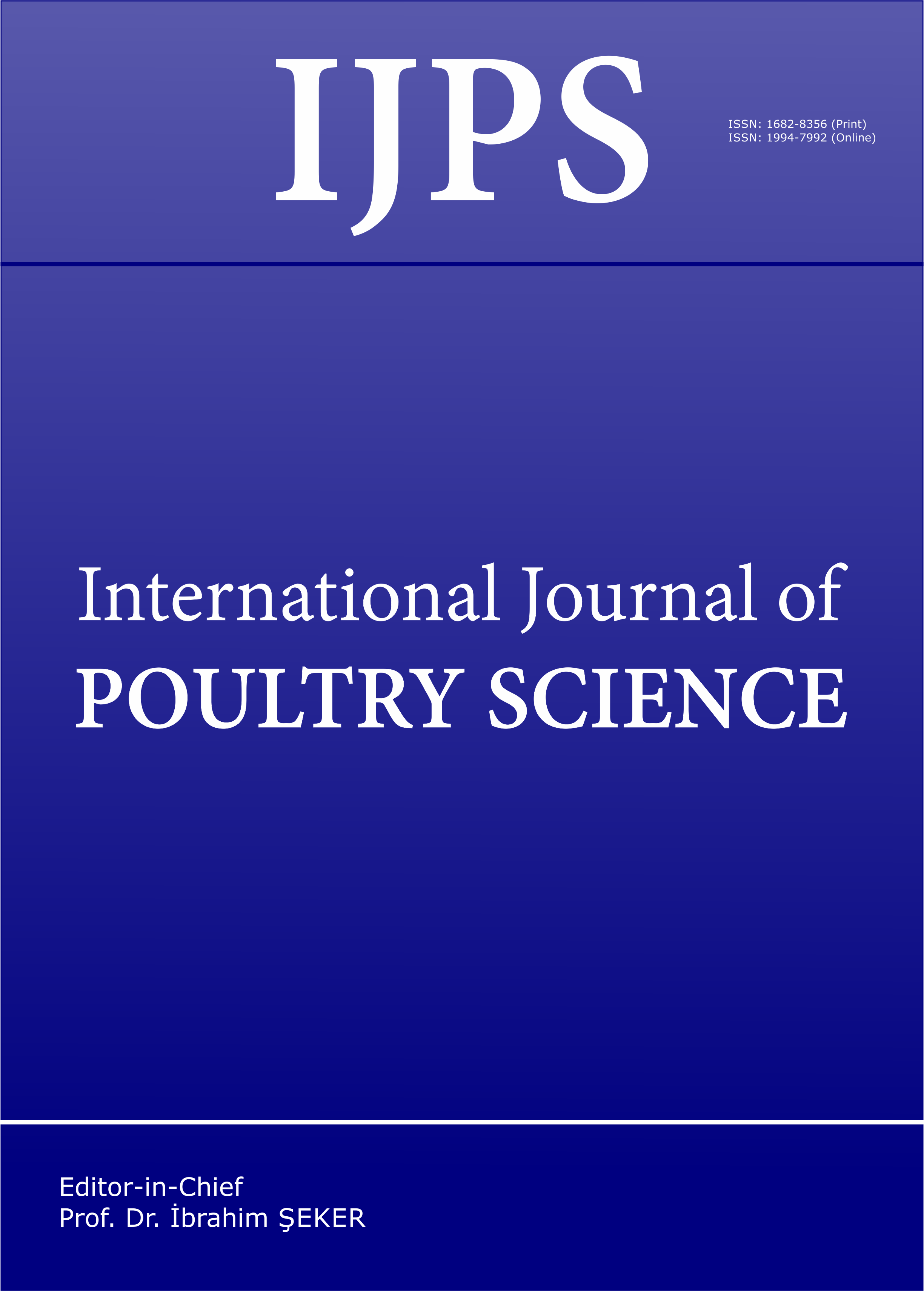Effect of Dietary Al2(SO4)3 on Salmonella Transmission, Feed Consumption and Growth in Immature Replacement Breeders
DOI:
https://doi.org/10.3923/ijps.2006.1053.1056Keywords:
Aluminum sulfate, broiler breeder, feed restrictionAbstract
Alternate-day feed restriction of broiler breeders is known to reduce adult gonadal function and increase ingestion of litter and feces, thereby increasing horizontal transmission of Salmonella. Similarly, preslaughter feed withdrawal increases crop contamination with Salmonella. We hypothesized that dietary Al2(SO4)3 (alum) would reduce voluntary consumption of feed, providing an alternative method of restriction (or preslaughter feed withdrawal). When alum was fed at 10% of the broiler starter diet, body weights were reduced by 67%, with a 60% reduction in feed consumption. In vitro, alum (10%) caused a 3.5 log reduction in Salmonella enteritidis (SE) recovery as compared to controls. In broilers 8 h prior to slaughter using a SE horizontal transmission model, alum (10%) had no effect on recovery of SE from crop or cecal tonsils. In additional experiments, alum (10%) significantly increased SE recovery from cecal tonsils and significantly elevated heterophil to lymphocyte ratios by 14 days of treatment as compared to either pair-fed broilers or controls. In conclusion, these data indicate that dietary alum causes increased stress as compared to daily dietary restriction, does not reduce horizontal transmission of SE, and is not a useful alternative to physical feed restriction.
Downloads
Published
Issue
Section
License
Copyright (c) 2006 Asian Network for Scientific Information

This work is licensed under a Creative Commons Attribution 4.0 International License.
This is an open access article distributed under the terms of the Creative Commons Attribution License, which permits unrestricted use, distribution and reproduction in any medium, provided the original author and source are credited.

